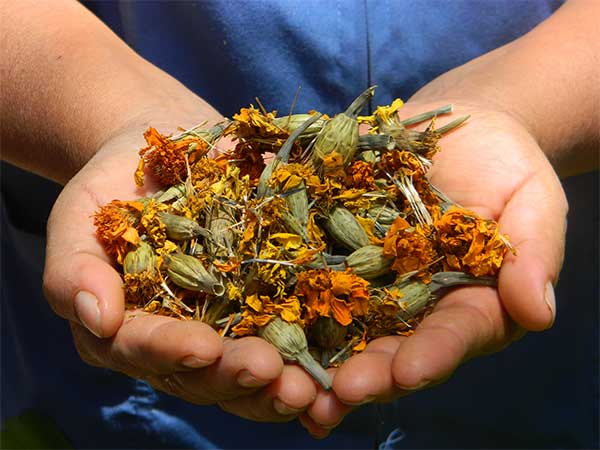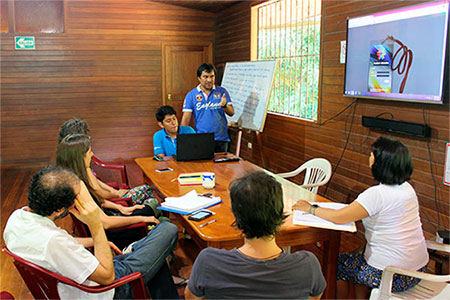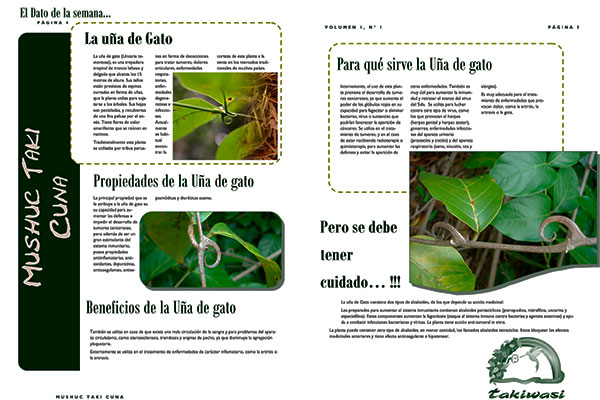Research
Since its beginnings, the Takiwasi Center has promoted scientific research on its therapeutic protocol for the treatment of addictions. The uniqueness of Takiwasi and the efficacy of treatments has interested researchers in Anthropology, Ethnology, Medicine, Psychology and Psychiatry. Up to now the treatment model has been the object of study of around 100 national and international research projects, articulating an interdisciplinary academic community, composed of scientific institutions of global excellence. Included among these: The Centre for Addiction and Mental Health – CAMH (Canada), James Cook University (Australia), University of Fribourg (Switzerland), Ecole des Hautes Etudes en Sciences Sociale de Paris (France), Ecole de Santé Publique de la Université de Médecine Henri Poincaré de Nancy I (France).
This growing interest of the scientific community is the reflection of a global process, observed for some decades, of approach and opening of western culture towards concepts and methodologies on health issues coming from different Traditional Medicines around the world. In this context it is of fundamental importance to have rigorous and reliable information that can be useful to those who work and make decisions in the field of health and public policies. Scientific research has the fundamental role of generating such information. In order to guarantee accuracy and quality, we consider that collaboration with scientific and academic institutions specialized in the fields of mental health, addictions and neurosciences, is the key factor.
To improve the evaluation accuracy of the therapeutic proposal and contribute to a broader understanding of addictions, Takiwasi has developed a computerized system for collection, systematization, management and evaluation of therapeutic and clinical information called Plus, whose challenge is to adapt to very different practices such as Traditional Amazonian medicine and modern psychology and medical science. This project is mainly intended to promote and facilitate scientific research, but also to support therapists in their daily monitoring activities and to improve the accuracy of documentation of their clinical cases.
The importance of this initiative lies in the need, recognized by biomedical sciences, to perform more research that can contribute to improve the understanding of addiction and to develop effective interventions against it. The innovative nature of the treatment of the Takiwasi Center, which consists in providing an intercultural view of the causes of addiction, as well as in the way of dealing with them and the mechanisms for rehabilitation, is a valuable opportunity for research in this field. The Plus system focuses directly on meeting this need, storing clinical information that reflects the rehabilitation processes of hundreds of people from different ethnic, cultural and socioeconomic origins. The clinical information stored thanks to the Plus system is already being used by researchers from different countries and disciplines, to deepen the understanding of the mechanisms behind addiction and the approach of the Takiwasi Center.
The empirical observation has been able to confirm the high efficacy of traditional ancestral practices to treat addiction to toxic substances, while we still consider the need of a validation of our protocol by the international scientific community. For this reason, several initiatives have been put in place. One of them is the evaluation of the efficacy of the treatment in Takiwasi under the ATOP Project (Ayahuasca Treatment Outcome Project). This is an international Ayahuasca research project developed between 2013 and 2022 in which reseachers from several countries have been collaborating such as Canada, Mexico, and Brazil, among others. The objective is to systematically evaluate the therapeutic effects and the effectiveness of the treatment of addictions based on the articulation of Traditional Amazonian Medicine, including the use of the Ayahuasca brew, and modern psychotherapy.
To ensure adequate dissemination of the results and findings, Takiwasi presents its research work and clinical experience in conferences in the health field, participates in scientific media spaces around the world, and organizes scientific forums of international significance.
The Takiwasi Center also has an Institutional Review Board for Research established through Multiple Memorandum Nº001-2021-TAKIWASI/PE, which ensures ethical standards for research involving human subjects.
Sacred Science: A Conversation about Research and Spirituality
Applied Research in Ethnobotany

Starting from the fundamental research based on an intelligent articulation of the contributions of modern and empirical medicines, and especially from the applied research in ethnobotany, since 2007 a pharmaceutical laboratory has been created within the Takiwasi Center for the production of high-quality natural products based on Amazonian medicinal plants.
In addition to producing high-quality natural products inspired by Traditional Amazonian Medicine, the Laboratory works with native communities so to help them to regain control over their own ancestral knowledge related to the use of medicinal plants, researching and protecting this source of wisdom.
Born as a strategic project to combine the conservation of the environment and the inclusive development of the communities, the Takiwasi Laboratory has been transformed into the productive unit of the Center, dedicated to Biotrade and to promote the generation of added value in the sustainable use of the resources of the Amazonian biodiversity.
The most recently published research works:
- Participant experiences of icaros (Amazonian curative songs) during a traditional medicine ceremony at the Takiwasi Center, Peru, Authors: Maya Sherwin, Fabio Friso, Jörg Fachner, Matteo Politi. Published in Journal of Psychedelic Studies, December 2024.
- Ayahuasca ceremonies, relationality, and inner-outer transformations to sustainability. Evidence from Takiwasi Center in Peru, Authors: David Manuel-Navarrete, Serena DeLuca, Fabio Friso, Matteo Politi. Published in Ecosystems and People, April 2024.
- Purging to cleanse: a qualitative study of Ayahuasca healing at a drug treatment centre in Peru, Authors: Svĕt Lustig Vijay, Magdalena Harris, Fabio Friso, Matteo Politi. Published in Journal of Studies on Alcohol and Drugs, June 2024.
- Use of tobacco purge in a therapeutic community for the treatment of substance use disorders, Authors: Tereza Rumlerová, Eric Kube, Nahuel Simonet, Fabio Friso, Matteo Politi. Published in Anthropology of Consciousness, September 2022.
We investigate traditional Amazonian medical knowledge and practices.
Contact Form
×A confirmation e-mail has been sent to your account.

